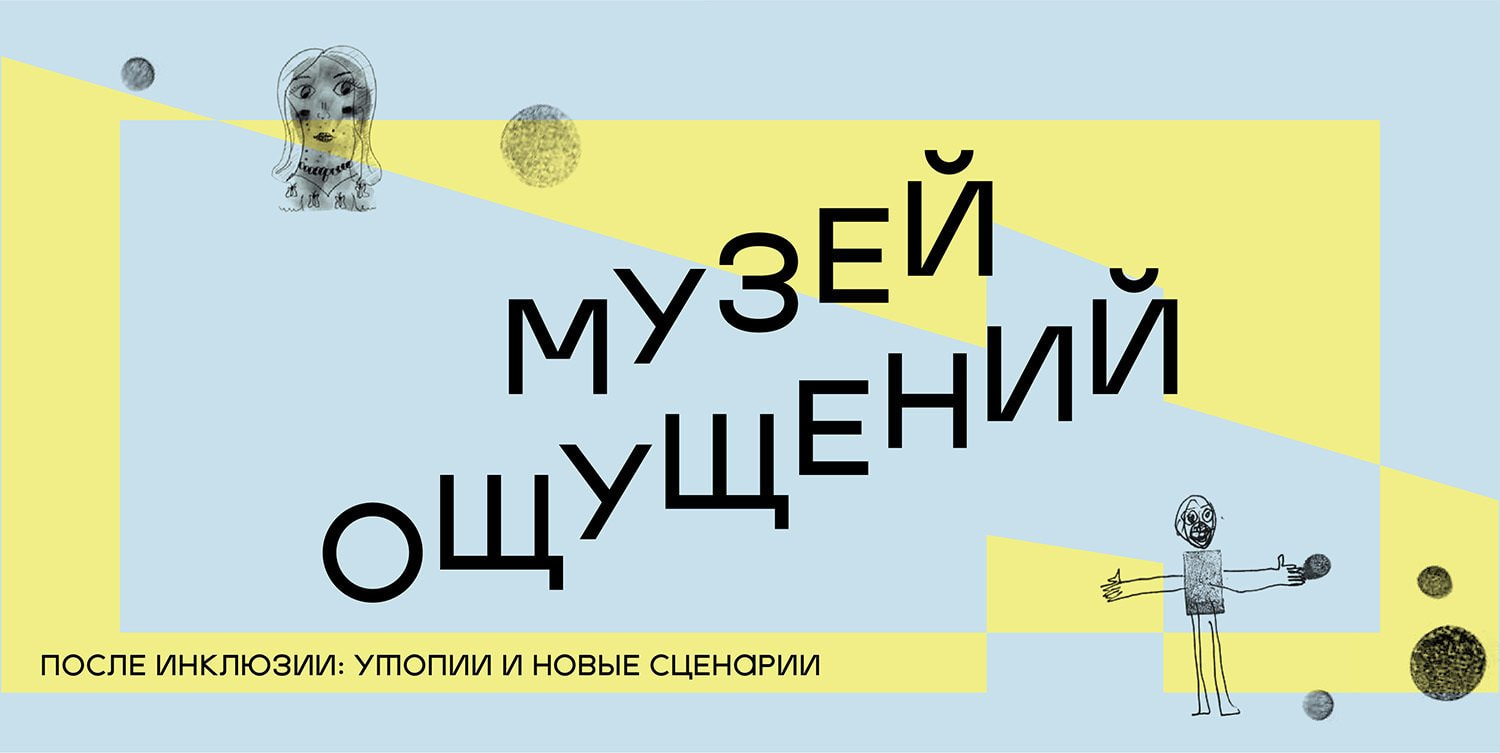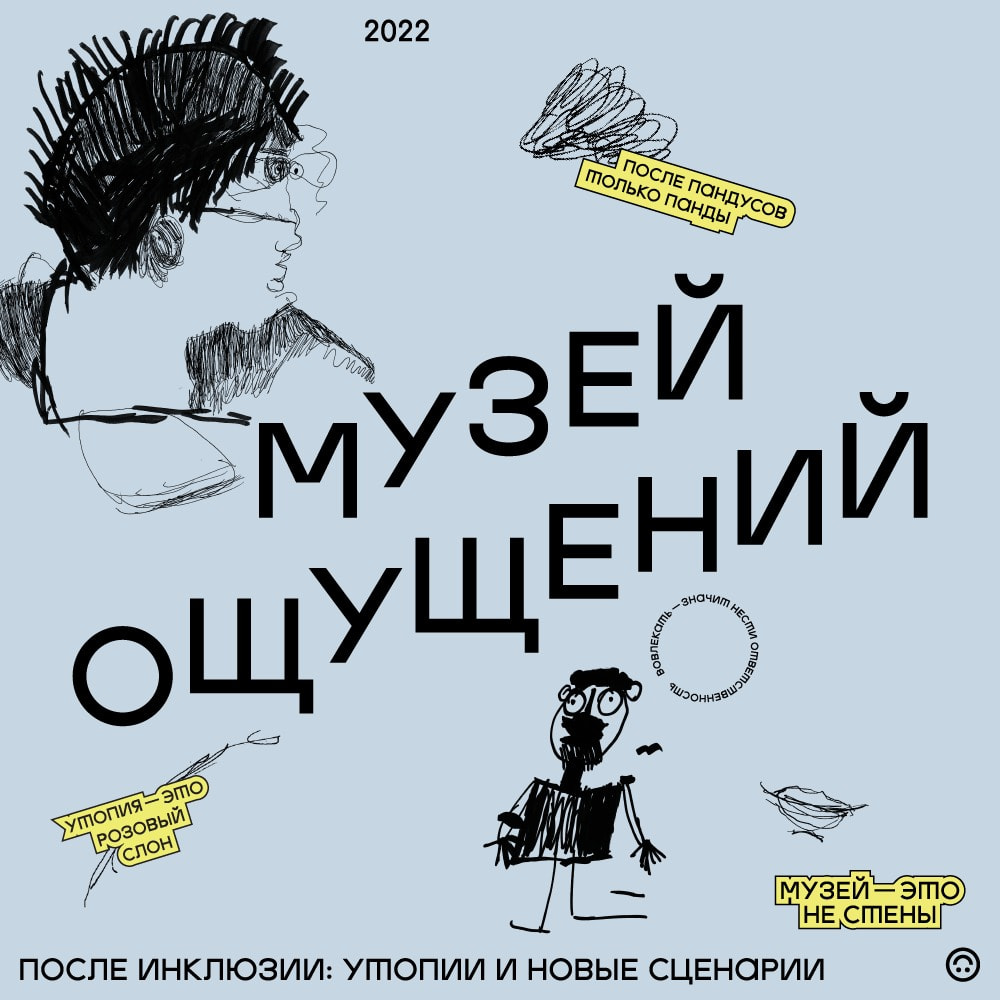Garage Museum of Contemporary Art is pleased to announce the 7th annual Experiencing the Museum conference and invites participants to join a collective discussion of the past decade’s achievements and possible scenarios for the future development of inclusive projects.
Block 1. Museums as a place (for) of action and feeling
Schedule
HOW TO TAKE PART
Advance registration is required.
Events will be interpreted into Russian Sign Language and accessible to deaf and hard-of-hearing visitors.
For more information, please contact openmuseum@garagemca.org
We care about the health of our visitors and follow the decree of the Moscow government, by which a visit to the Museum is only possible with a QR code and an original passport.
Visitors under 18 do not need a QR code but must be accompanied by an adult with a QR code. Personal protective equipment must be used at the event.
Schedule
Museums as a Place (for) of Action and Feeling
Delegate welcome and introduction to the conference program.
Participants
Anton Belov — Director, Garage Museum of Contemporary Art
Lyuda Luchkova - coordinator at Garage Inclusive Programs Department
Workshop: Social Justice and the New Role of Museums
Garage Museum of Contemporary Art and the Cultural and Education Section of the British Embassy in Moscow launch а workshop led by the Research Centre for Museums and Galleries (RCMG), School of Museum Studies, University of Leicester for the Experiencing the Museum 2022 conference.
The workshop will explore the idea that museums have ethical possibilities and responsibilities to harness and direct their capacities for social good.
“Leveling hierarchies, challenging assumptions, countering erasure, promoting the margins over the center, the minority over the majority, inspiring intelligent debate, disseminating new knowledge, and encouraging strategies of resistance.”
As support for the concept of the museum as a purposeful force for change has grown, we have also seen an emerging and strident backlash from some quarters—an attempt to discredit or undermine this approach to museum thinking and practice—to position it as marginal or destructive or to suggest that it is biased or partisan.
Acknowledging that this field of work is emerging, nascent, and often challenging, this workshop explores the steps, sometimes small scale and tentative, that museum practitioners of all kinds can take—whatever context they are working in—to support their organizations to work ethically and in more socially purposeful and impactful ways.
About the trainers
Professor Richard Sandell is Co-Director of RCMG and Professor of Museum Studies and has worked with RCMG since its inception, co–directing a number of projects and helping to shape its research focus. His research interests currently focus on the museum's potential to engage with social justice issues and lend support for human rights.
Professor Suzanne MacLeod is Co-Director of RCMG and Professor of Museum Studies and has worked with RCMG on a number of key projects since 2013. She plays a leading role in shaping the Centre’s research agenda and priorities. Her research explores contemporary museum design, with a particular focus on design methodologies and the acknowledgment of the potential of design in creating inclusive environments which foster relationships and equality and enable full lives.
Subhadra Das is a researcher and writer who looks at the relationship between science and society. She specializes in the history and philosophy of science, particularly the history of scientific racism and eugenics, and what those histories mean for our lives today.
Dr Sarah Plumb joined RCMG in 2016 and became a Senior Research Associate in 2019. Her research is particularly focused on collaborators' experiences of socially engaged practice and the arising ethical implications of collaborations between museums and communities. Prior to joining the University of Leicester Sarah worked as a museum and gallery educator.
Attending the conference is available with advance registration.
Participants will have access to simultaneous interpretation to Russian and Russian Sign Language.
The event will take place at Garage Education Center in a hybrid format, with the possibility of online and offline participation. Please indicate the format convenient for you in the registration form.
Opening dinner of the conference Experiencing the Museum curated by artist Yulia Levin
Yulia Levin uses food as a communication tool and artistic medium to explore the nature of human interaction by organizing festive multisensory edible events.
As the most ancient carrier of culture, food can become a means of communication and a good reason for reflection. The very architecture of the dinner—with its space divided into multisensory taste laboratories—allows all guests to engage in the process of communication. In the sound lab, they will be able to taste sound through crunchy and fizzy foods; form and taste are crucially important in the tactile one; the inclusive lab presents each plate as an image of the common and universal in its diversity and a certain reason for interaction; and in the laboratory of interdisciplinarity and connection, new tastes are born at the intersection of the most diverse aspects of taste and more.
The artistic narrative continues through the ceramics that Yulia Levin created especially for the event. With the shape of the dishes determined by the overall concept of the dinner, Yulia rethinks the very idea of manual labor and sensory experience, revealing yet another aspect of symbolic involvement in the process. A guide map created for the dinner is designed to help guests navigate through the novel environment while searching for new (taste and sound) combinations.
About the artist
Yulia Levin is an artist who explores hospitality as a form of contemporary art and creates food installations. Her artistic work is dedicated to the practice of caring in the form of lunches and dinners. She teaches the theory of contemporary art in women's penal colonies, cooks dinners for women in difficult life circumstances, and studies the cultural, anthropological, political context, and social significance of hospitality as well as its varying forms in history and current trends. Participant of Russian and international exhibitions. Winner of the MMoMA × Gucci Biennale for Young Art (2020). In 2021, her performance The Forest was shown at Alexandrinsky Theater. She lives and works in St. Petersburg.
Dinner attendance is only possible with advance registration on the first day of the conference. Entrance to dinner will be conducted in accordance with the lists of registrants.
*Attention! Some dishes contain potential allergens: eggs, milk, nuts, wheat (gluten), beans, citrus fruits, chocolate, honey. Please check the composition of the dishes with the Museum staff.
Discussion: Don’t Touch, Don’t Listen, Don’t Look: Is a Fully Multisensory Museum Possible in the Future?
The discussion will focus on the potential as well as some of the best currently existing practices for facilitating a multisensory experience for museum visitors. Participants will discuss how new technologies and advancements could affect the museums of the future and whether they will be able to make the museum space more accessible to different groups of visitors.
The event is timed to coincide with the publication by Garage of the Russian translation of the book The Multisensory Museum: Cross-Disciplinary Perspective on Touch, Sound, Smell, Memory, and Space—a collection of papers on understanding the meaning of tactile, auditory, spatial, olfactory, and gustatory sensory experience in museums of the present and future.
The discussion will be moderated by the scientific editor of the book, Nikita Bolshakov, candidate of sociology, senior lecturer at the Department of Sociological Research Methods at National Research University – Higher School of Economics, and senior researcher at HSE’s International Laboratory for Social Integration Research. He also curates accessibility and inclusion programs at the Museum of Cryptography.
The speakers will be announced at a later date.
Attending the conference is available with advance registration.
The discussion will be held in Russian with translation into Russian Sign language.
The discussion will be broadcast on the Museum’s YouTube channel.
Film Screening: Code of the Freaks
Taking Tod Browning's classic film Freaks as a starting point, Salome Chasnoff looks back at the history of the representation of disability in Hollywood, discussing particular cases with activists, researchers and filmmakers.

